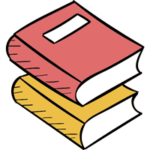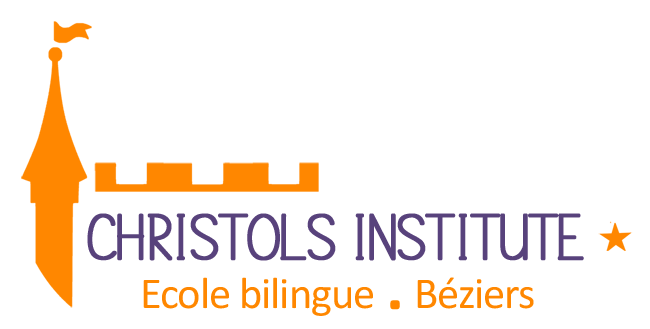- contact@christolsinstitute.com
- Mon - Fri : 7h30 - 18h30
- +33(0)6 01 98 08 00
The Bilingual Primary School
Find all the information on class times, lunch, wraparound care, and study:
Our Educational Project
Our students are the adults of tomorrow
We aim to establish in them, the values that are essential to enjoy a peaceful and fulfilling life at school and in society at large; a sense of service and commitment, solidarity, and the ability to listen to others.
We pay special attention to helping the students to develop "social skills," meaning the ability to communicate and interact with others. We teach them non-violent communication, how to manage conflicts, and to be kind.
Developing self-confidence in our students is one of our primary educational goals because, to paraphrase Stanislas Dehaene: "confidence is the engine of the desire to learn." By using tools from Anglo-Saxon educational systems and the Montessori method, we make them autonomous, we value each child, and encourage them by taking into account their personality and specific needs.
We encourage every student to consider their own capabilities and to surpass their expectations. We want them to be proud of what they have accomplished both as individuals and as part of a team.
Nature, a common good for all
To have self-respect as well as show respect for others, necessitates all individuals to demonstrate a respect for nature, our earth, and the common good.
We teach the students to observe, to marvel, and to discover through various subject areas such as the Sciences and Humanities, but also through the cultivation of our vegetable garden and "Nature" outings to observe the fauna and flora of our beautiful region.
We encourage and raise the children's awareness, through small everyday gestures and long-term projects, to preserve resources and respect our environment through the rational use of materials, water, and energy, by sorting waste in class and at the cafeteria, and through charitable actions with environmental associations...
Learning to Learn
School is not just about teaching the basics; children must also learn how to learn. Through good practices and work methods learned in each discipline, as well as through interdisciplinary memorisation and effective work methods such as mental management and attention pedagogy, children can work more efficiently, have an easier time retaining information long-term, and find joy in the process of learning.

Our Bilingual Pedagogical Project
Our bilingual primary school is, in form, more traditional than our Montessori bilingual preschool. However, we retain all the educational values to offer our students and all children joining us in the primary section, a structured and caring pedagogy based on the transmission of fundamental knowledge and the child's development in all their dimensions.
We place the child at the heart of learning by advocating a holistic approach, that considers them in their entirety (cognitive, metacognitive, emotional, relational, and conative). We have selected proven and innovative methods that seem most suitable and coherent with our pedagogical project. We respect the national education common core of knowledge but, of course, do not hesitate to go beyond it.
These methods enable us to:
- Access meaning through gesture and verbalization
- Develop long-term memory
- Analytical capability
- Respect for different cognitive modes
- Progressiveness
- Differentiation
joining
Subjects Covered
French Instruction
We pay special attention to the learning of French, ensuring our students can express themselves in a structured and precise manner, both orally and through their writing.
- Syllabic and conscious reading from preschool.
- Cursive writing learned alongside reading.
- Introduction of analytical grammar, conjugation, and spelling from the first grade.
- Daily dictation.
- Emphasis on a rich and varied vocabulary.
- Written and oral expression from the second grade.
- Regular poetry to sensitise our students to the beauty of the French language and to train their memory.
English Instruction
English is also taught as a "subject" from the second half of the second grade (CM1) once the basics of reading and writing in French are acquired.
We follow the Cambridge programme, which provides access to internationally recognised certifications and diplomas. This programme is present in 160 countries and over 10,000 schools.
Our students learn to read and write in English, as well as gain knowledge English grammar and literature.
From preschool upwards, oral skills are practised daily through language immersion as well as through sports, singing, visual arts, and theatre. These skills are also gained through subjects specifically taught in English such as geography, sciences, and about 1/3 of the primary mathematics programme.
Specific instruction is set up for students who join us at primary level:
- FLE (French as a Foreign Language) in small groups or private lessons for non-Francophone children.
- ESL (English as a Second Language) in small groups or private lessons for children who do not have the required level of English.
Mathematics Instruction
Mathematics is not just a school subject; it represents a way of thinking, a culture, and reasoning that helps understand, invent, and imagine the world around us.
This conception of mathematics partly motivated the choice of Montessori pedagogy in preschool and the Singapore method in primary. Through the manipulation of mathematical objects, the progression from concrete to abstract, verbalisation, as well as error pedagogy and problem solving, children gradually enter into an intellectual construction that truly stimulates thinking.
- Singapore method from the first to fifth grade. (CP to CM2)
- Daily mental arithmetic.
- Mathematical logic games.
- Kangaroo contest for those interested.
About 1/4 of the mathematics instruction is conducted in English to enrich vocabulary.
History Instruction
From the second grade (CE1), French history will be taught by Francophone teachers. Major periods will be approached chronologically, narrating the lives of men, famous people, and key historic events.
Science and Geography Instruction
Sciences and Geography are taught by Anglophone teachers. Formerly known as "object lessons," primary school science teaching is conducted through manipulation and observation to develop in children a scientific approach based on methodical observation, experimentation, and description.
Already introduced in preschool, the exploration of France and the world continues in primary school. Geography is taught using lively and explicit pedagogies that link with knowledge acquired in other domains.
Sports
Regular physical activity is essential for children's healthy development. "A sound mind in a sound body." From preschool to fifth grade, sports classes are taught by Anglophone teachers. Your children engage in regular physical activities suitable for their age. The school also organises "Olympiades" each year, where all primary school children participate in multi-level teams to develop fair play, a taste for effort, teamwork, and solidarity.
Arts, Singing, and Theatre
Our school places great importance on the arts. These cross-curricular disciplines are taught in both French and English. Here, we aim to introduce your children to beauty, encourage their creative spirit, and reveal their talents.
Art is present in all disciplines, whether it be visual and plastic arts, music, or theatre, serving as a conduit for the values and skills children need to flourish: concentration, a taste for well-done work, self-esteem, cooperation, and perseverance.
Visual arts: Art history often coupled with history lessons, museum visits, thematic school decorations...
Plastic and manual arts: Practised in workshops but also in other disciplines like sciences, geography... They help develop fine motor skills, spatial representation, and sensory work through the manipulation of various materials and multiple supports...
Music: Music history often coupled with history lessons, study of musical works, singing classes...
Theatre: From preschool throughout primary school, whether through improvisation skits, collective creations, or classical repertoire, it helps acquire vocabulary, stimulates imagination and communication, assists in managing emotions, and body awareness in space...
Daily Life
School Hours
The school hours are the same as those for the preschool. From 8:00 to 8:30 AM, children are welcomed in the playground. From 4:00 to 4:30 PM, children are picked up by their parents in the playground.
Monday
- 8:30 AM – 11:45 AM and 1:00 PM - 4:00 PM
Tuesday
- 8:30 AM – 11:45 AM and 1:00 PM - 4:00 PM
Wednesday
- 8:30 AM – 11:45 AM
Thursday
- 8:30 AM – 11:45 AM and 1:00 PM - 4:00 PM
Friday
- 8:30 AM – 11:45 AM and 1:00 PM - 4:00 PM
School meal
Our school does not currently offer a cafeteria service. For those who wish, children can bring a packed lunch, preferably already hot in a "thermos," as the meals will not be reheated by the school. Cutlery and plates will be provided by the school.
Wraparound and Study Time
The school is open from 7:30 AM to 6:30 PM. A daycare service is established to facilitate the daily life of families.
Books

We offer a selection of books in line with our educational and pedagogical values to inform and assist you in your educational mission.
DEHAENE Stanislas. Les neurones de la lecture. Odile Jacob, 2007, 478 p.
ISSERON Serge. 3 – 6 – 9 – 12, apprivoiser les écrans et grandir. Erès, 2021, 156 p.
LACHAUX Jean-Philippe. L’attention, ça s’apprend ! Éditions MDI, 2020, 223 p.
SIAUD-FACCHIN Jeanne. L’enfant surdoué, l’aider à grandir, l’aider à réussir. Odile Jacob, 2012, 253 p.
NUYTS Elisabeth. L’école des illusionnistes. Savoir-apprendre.info, 2014, 333 p.
Contact
Contact us for any inquiries regarding the school, courses, and registrations.
170 Rue des Christols 34500 Béziers
06 01 98 08 00
contact@christolsinstitute.com
Useful links
Newsletter
Sign up for our newsletter to stay updated on the school's new
Nous n'avons pas pu confirmer votre inscription.
Votre inscription est confirmée.
- 2024. EDUCATION EN VALLEE D'ORB – Website created by AD-MARKETING

